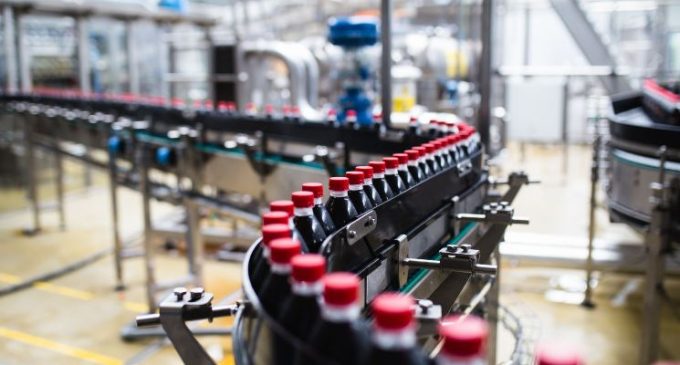Lifeline for fizzy-drinks manufacturers struggling to source CO2

Leeds-based CO2Sustain is reminding carbonated drinks manufacturers that its patented additive can cut by 12% the amount of CO2 needed to add fizz during production, helping to mitigate the pressure on CO2 supplies while maintaining the same high-quality beverage experience for consumers. The reminder is in response to yet another serious blow for the supply chain, where the low availability of carbon dioxide (CO2) seriously threatens to jeopardise production of fizzy drinks – potentially resulting in empty supermarket shelves during the peak Christmas period.
On 25 August, CF Fertilisers announced that its facility at Billingham on Teesside, the UK’s largest and last remaining fertiliser plant, will pause production this month due to soaring energy costs. The site has been producing around 42%[i] of the UK’s CO2 as a by-product of the production of ammonia and is capable of delivering 750 tonnes of CO2 per day[ii]. The CO2 is sold on to a range of industries and is crucial to the carbonation of soft drinks. CF Fertilisers’ other plant, at Ince in Cheshire, permanently ceased production in September 2021.
The energy crisis has hit CO2 production hard. Natural gas is the biggest cost in the production of ammonia, the main source of industrial CO2. According to the Royal Society, it is a highly energy-intensive process which consumes around 1.8% of global energy output each year[iii] – and the recent rise in energy prices has seen the UK’s ammonia production become unstable to the point of unsustainable. Last year, the government stepped in with short-term financial packages to prop up CF Fertilisers’ Billingham plant while the market adjusted to the surge in global gas prices, but ultimately that surge proved too enduring and uneconomical.
Meanwhile, the Ensus renewable ethanol plant at Wilton on Teesside, which also supplies CO2 to the carbonated drinks industry, has announced a pause for maintenance during September, further exacerbating the supply challenge.
By September last year, the British Soft Drinks Association (BSDA) had already announced that some manufacturers had only “a few days” of CO2 left in reserve, and most were not scheduling more than 24 hours in advance – leading to no visibility of UK stocks, no certainty around deliveries, and the possibility of ceasing the manufacture of some products[iv]. A year on, the market remains under relentless pressure; despite urgent talks between soft-drinks manufacturers and Defra, the government appears to have no appetite for supporting the Billingham plant.
Against this challenging backdrop, Leeds-based CO2Sustain is offering significant mitigation against the effects of the CO2 shortage thanks to its patented additive which can significantly reduce the amount of CO2 needed in carbonated drinks. The additive is already used by some of the world’s leading brands.
According to John Story, managing director and technical director at CO2Sustain: “Our product lets fizzy-drinks manufacturers cut their CO2 needs by up to 12% – with no detriment to the taste experience. A litre of carbonated soft drink typically contains around 8 grams of CO2, but that can be cut by 1 gram per litre simply by adding our flavourless carbonation aid during production. Requiring 12% less CO2 relieves some of the pressure on the supply chain and enables manufacturers to cut their production costs at this challenging time.”
CO2Sustain’s patented additive is a non-ionic surfactant comprising a dispersion of Polysorbate 65 in water. It is effective in virtually all carbonated soft drinks, regardless of their ingredients or sweetening agents, and contains no silicone or preservatives. Taste tests prove that consumers find no discernible difference in fizziness on pouring or on first taste, even when up to 12% less CO2 has been used in production. The additive also reduces the amount of CO2 lost through foaming during pouring, and the desired level of fizz remains in the drink for up to half an hour longer – improving the overall experience from first to last sip.
“We’re fully confident that we can support fizzy-drinks manufacturers through these difficult times,” says John Story. “We all hope that the CO2 supply chain will stabilise, after which time continued use of our additive will allow manufacturers to either reduce their demand for CO2 or continue to use the same amount of CO2 as before while enabling the production of 12% more beverages.”
[i] https://www.thegrocer.co.uk/
[ii] https://www.newfoodmagazine.


































